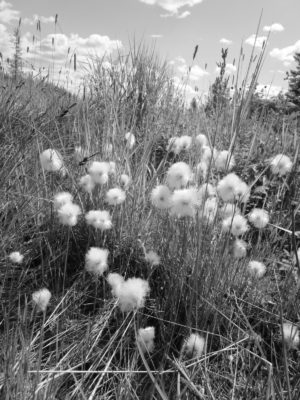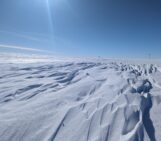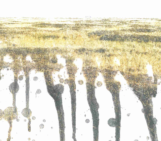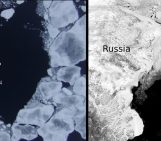
Most problems faced in research are complex and require creativity and critical thinking. Thus, we need to be creative in science! Or maybe, science itself is creative and there is no such thing as non-creative science. Anyhow, in today’s world, where TED-talks, science slams and elevator pitches, not to mention tweets, are ubiquitous, it is important that scientific expression takes on a form that can be understood by a professional audience, as well as by the public at large.
Creative Permafrost Science
I carried out my PhD project at the Alfred Wegener Institute, Potsdam, Germany, where I examined permafrost in Siberia and communicated my science.
First about the permafrost: Permafrost is perennially frozen ground that covers a large area of the Northern Hemisphere and can reach depths of hundreds of meters. Furthermore, a large amount of organic matter is stored in these permafrost soils, for example in the form of plant remains, which forms a large carbon stock. With ongoing climate change, this organic matter can be decomposed by microbes leading to enhanced greenhouse gas emissions, further intensifying climate warming – the so-called permafrost carbon climate feedback.
Now about the science communication: during my PhD, I was involved in science communication activities where I discussed the relevance of permafrost research with school classes and students. We often discussed what we can do against permafrost thawing. Unfortunately, not many geo-engineering techniques can help us preserve permafrost, especially not on a large scale; the main thing we can do is to fight climate change. This is of course a bit sad, to study something that is bound to change, likely irreversibly, in the next decades to centuries. I like to write poems which are often inspired by nature. This poem is a eulogy for permafrost for the year 2322, in which I look back at how we treated or rather neglected permafrost over the past 300 years.
RIP Permafrost
You left us too early
You seemed eternal
But it was not meant to beFor thousands of years so long
You stored organics, you were so strong
But there are only so many stones in a riverbed
The microbes are back, the doctor saidHumans built houses, roads and pipes
Trying to keep you in line and the likes
Yet you broke free, free to and move
We all know how you like to grooveClose to the rivers and the coasts, humans built
They should have known the ratio of ice to silt
They blamed you for their collapsing plates
Such high coastal erosion ratesHumans hung you out to dry, actually more like drowning
They watched the greening and the browning
They watched you slide and slump and burn
And form gullies and lakes at every turnHumans came and drove with heavy trucks
Disturbing a sensitive system full of feedbacks
Leaving tire tracks for decades, the mess
Full of waving cotton grassYou left us too early
You seemed eternal
But it was not meant to be
Further reading:
- Latest scientific publication by Loeka Jongejans about greenhouse gas production in thawing permafrost sediments in Siberia
- Previous blog posts about permafrost:
- It’s getting hot in here: Ancient microbes in thawing permafrost by Maria Scheel
- Image of the Week – When the dirty cryosphere destabilizes! by Laura Helene Rasmussen
- Another poem about degrading permafrost in the Cryoblog: Degrading Terrains by Sam Illingworth
Edited by Lina Madaj and Marie Cavitte
 Loeka Jongejans just finished her PhD at the University of Potsdam and the Alfred Wegener Institute, Potsdam, Germany. She carried out biogeochemical investigations of the organic matter stored in permafrost deposits in Arctic Russia. As climate warming leads to permafrost thaw, organic matter that was previously freeze-locked can be decomposed by microbes whereby greenhouse gases are produced and released. Apart from biogeochemistry of the cryosphere, Loeka has been involved in outreach activities including organizing science events for school kids and students and developing outreach products. She likes to write poems and to combine art and science. She tweets as @JongejansLoeka.
Loeka Jongejans just finished her PhD at the University of Potsdam and the Alfred Wegener Institute, Potsdam, Germany. She carried out biogeochemical investigations of the organic matter stored in permafrost deposits in Arctic Russia. As climate warming leads to permafrost thaw, organic matter that was previously freeze-locked can be decomposed by microbes whereby greenhouse gases are produced and released. Apart from biogeochemistry of the cryosphere, Loeka has been involved in outreach activities including organizing science events for school kids and students and developing outreach products. She likes to write poems and to combine art and science. She tweets as @JongejansLoeka.
Contact Email: loeka.jongejans@awi.de




